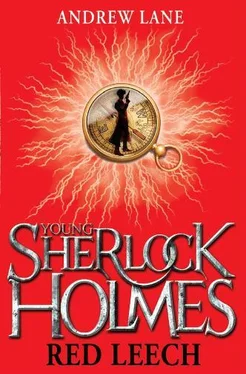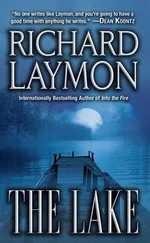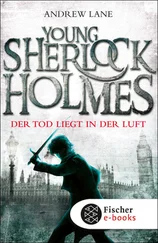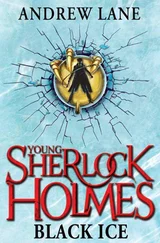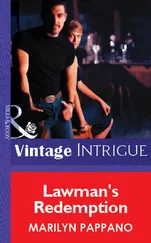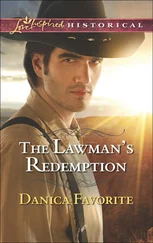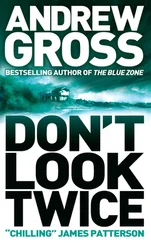“He still would have come after you,” Virginia said. “That’s what he does. He doesn’t take orders well.”
Berle was about to say something, but the French doors leading into the house from the veranda suddenly opened. Two servants in immaculate black tailcoated jackets held them open while another figure emerged into the sunlight.
The man was tall — over six feet, Sherlock estimated, and probably closer to seven — and painfully thin. Everything he was wearing was white — tailored suit, waistcoat, shirt, boots, broad-brimmed hat and gloves — with the exception of the band that encircled the crown of his hat and the bootlace tie that hung down from the collar of his shirt and disappeared behind his waistcoat. They were both made of black leather. For a moment, Sherlock thought that his face was either incredibly pale or covered with white make-up, but then he realized that the man was wearing a mask made of porcelain that was so exquisitely made that it looked like a fine-featured, sensitive face. The hair that emerged from beneath the hat and fell around the edges of the mask was so blond that it was itself almost white.
The eyes that stared through the holes in the mask were not white, however. The irises were so dark that they were almost black, but the area around the irises was bloodshot. The effect, set against the pristine whiteness of the mask, was to make the eyes seem as if they were glowing red.
The man’s wrists, emerging from the cuffs of his shirt, were almost impossibly thin. Sherlock wondered if it would be possible to break his bones just by shaking his hand. Not that the man was extending his hand to be shaken. Both of his arms were pulled away from his body as he moved, with black leather leashes leading away from his wrists into the darkness of the house. And something was pulling those leashes tight.
He stopped just outside the doors. Sherlock thought he could see something moving behind him, at the ends of the leashes, but he wasn’t sure what. Some kind of dogs, presumably, but big.
“Dr Berle,” the man said from behind the mask. His voice was light, high and almost whispery. “Captain Rubinek. Mr Booth. And our distinguished guests, of course. I am afraid I do not know your names. Please, in the interests of polite conversation, would you be so kind as to introduce yourselves.”
“I’m Virginia Crowe,” Virginia said.
Matty scowled. “Matthew Arnatt.”
Ah,” the man said. A friend from across the sea.” He glanced at Sherlock with his red gaze. And you, sir? Who are you?”
“Sherlock Scott Holmes,” Sherlock replied.
Another British visitor. How... entertaining.”
Sherlock’s attention was drawn to the hands that held the leashes. There was something wrong with them, and it took him a moment to work out what it was. There were fingers missing from both hands — the little finger on the left hand and the fourth finger on the right hand, but the gloves had actually been tailored without those fingers, so there was no empty finger hanging loose or any material pinned back.
There was something else strange about the hands as well. They were as thin as the rest of the man, but there were lumps, pushing at the material of the gloves. What did those hands look like, beneath the gloves?
“You have us at a disadvantage,” Sherlock said, switching his attention back to the man’s porcelain mask and trying to keep his voice calm. “May I ask what your name is?”
“I am Duke Balthassar,” the man said, his voice as dry and papery as autumn leaves. “That’s “Duke” as in a first name, not “Duke” as in an honorific like “Count” or “Prince”. Now please, help yourselves to orange juice and bread rolls. I assure you, the juice is perfectly fresh and the rolls are still warm from the oven.”
Virginia reached for the decanter. “Let me pour,” she said.
Duke Balthassar moved out further into the sunshine. The leashes in his hand pulled tight, and then reluctantly two animals were pulled out on to the veranda.
Virginia spilt the orange juice on the white tablecloth.
For a moment, Sherlock didn’t know what they were. They looked like sleek, brown cats, but their heads were at a level with Duke Balthassar’s waist. Their eyes were black, and their tails flicked restlessly as their gaze moved from person to person.
“Cougars? Virginia breathed.
“Indeed,” Balthassar said. He sounded pleased. “I would say “Don’t let them scare you”, but that would be bad advice. Do let them scare you.”
“I didn’t know,” Virginia said, and Sherlock could hear the tremor in her voice, “that cougars could be tamed.”
“Tamed?” Balthassar said. “No, they cannot. But like all creatures, humans included, they respond to fear. And they fear me.” He said something in a foreign language, and the cougars scrunched themselves down on the veranda, settling down with their heads on their paws.
Sherlock could see the teeth in those not-quite-closed mouths. Those teeth could bite a man’s hand off his arm, and the claws that he could see barely sheathed could rip the arm itself out of the socket. “How do you make a cougar fear you?” he asked, not sure he wanted to hear the answer.
“The same way you make a man fear you,” Balthassar said. One of his black-clad servants pulled the remaining chair out, and he sat daintily, crossing his grasshopper-thin legs. “A mixture of pain, and examples of what will happen to them if they do not obey you. They have a memory. They remember the examples, and they act accordingly. Or you dispose of them and start again with another animal, and the act of disposal, if it is done properly and if it lasts for long enough, itself acts as an example of what will happen if the new animal does not obey you. You can leave the body lying around for quite some time.”
There was silence around the table for a moment as everyone watched the cougars.
“I like your train,” Matty said eventually.
The porcelain mask did not move, but Sherlock sensed that the man was smiling underneath. “You are very kind. It proves useful if I need to attend meetings in New York, or elsewhere. I do so hate having to take a carriage to the nearest station. The roads are bumpy, and there is so much dust. It’s far more preferable if the train comes to me.”
“How did you arrange that?” Sherlock asked.
“I provide the train company with a great deal of business,” Balthassar explained. “I am an entrepreneur. I have a number of travelling exhibitions and circuses, taking exotic animals around this fine country, and those exhibitions and circuses travel on our own trains. When I told them I wanted a spur line put in, and signals that would allow me to divert any train to my house, they agreed.” He paused. “Eventually After I provided some examples of what would happen if they did not agree with me.”
Sherlock tried to imagine what kind of examples Balthassar was talking about, and then he tried not to. The pictures were too vivid.
“So you diverted this train because your men were on board,” Virginia asked.
“Indeed. They had cabled ahead to tell me they were on board, and with several precious cargoes.” He glanced across at John Wilkes Booth, who was staring at a glass of orange juice as if it contained the secrets of the universe. “Mr Booth here is one of them. I have been waiting for some time for him to return to this once-glorious country. I have plans for him. Another cargo was unloaded earlier, and is even now being introduced to its new surroundings.” He switched his gaze to the box which Berle was holding on his lap. “And I believe that this box contains the final one. Am I right, Dr Berle?”
Berle nodded, and licked his dry lips. “It is, Duke. Do you—"
Читать дальше
